Salt hacks for home gardening – who knew such a common kitchen staple could be your garden’s secret weapon? I’m always on the lookout for simple, effective ways to boost my garden’s health and yield, and I was amazed to discover the power of salt beyond just seasoning our food.
For centuries, salt has played a vital role in preserving food and even influencing soil composition in certain agricultural practices. While its overuse can be detrimental, strategic application of salt can address specific gardening challenges. Think of it as a targeted treatment, not a blanket solution!
Are you tired of battling stubborn weeds that just won’t quit? Or perhaps your tomatoes lack that intense sweetness you crave? Maybe you’re struggling with a slug infestation that’s decimating your precious plants? These are common problems that many gardeners face, and that’s where these salt hacks for home gardening come in. I’m going to share some easy-to-implement DIY tricks that can help you tackle these issues naturally and affordably. Get ready to unlock the surprising potential of salt and transform your garden into a thriving oasis!
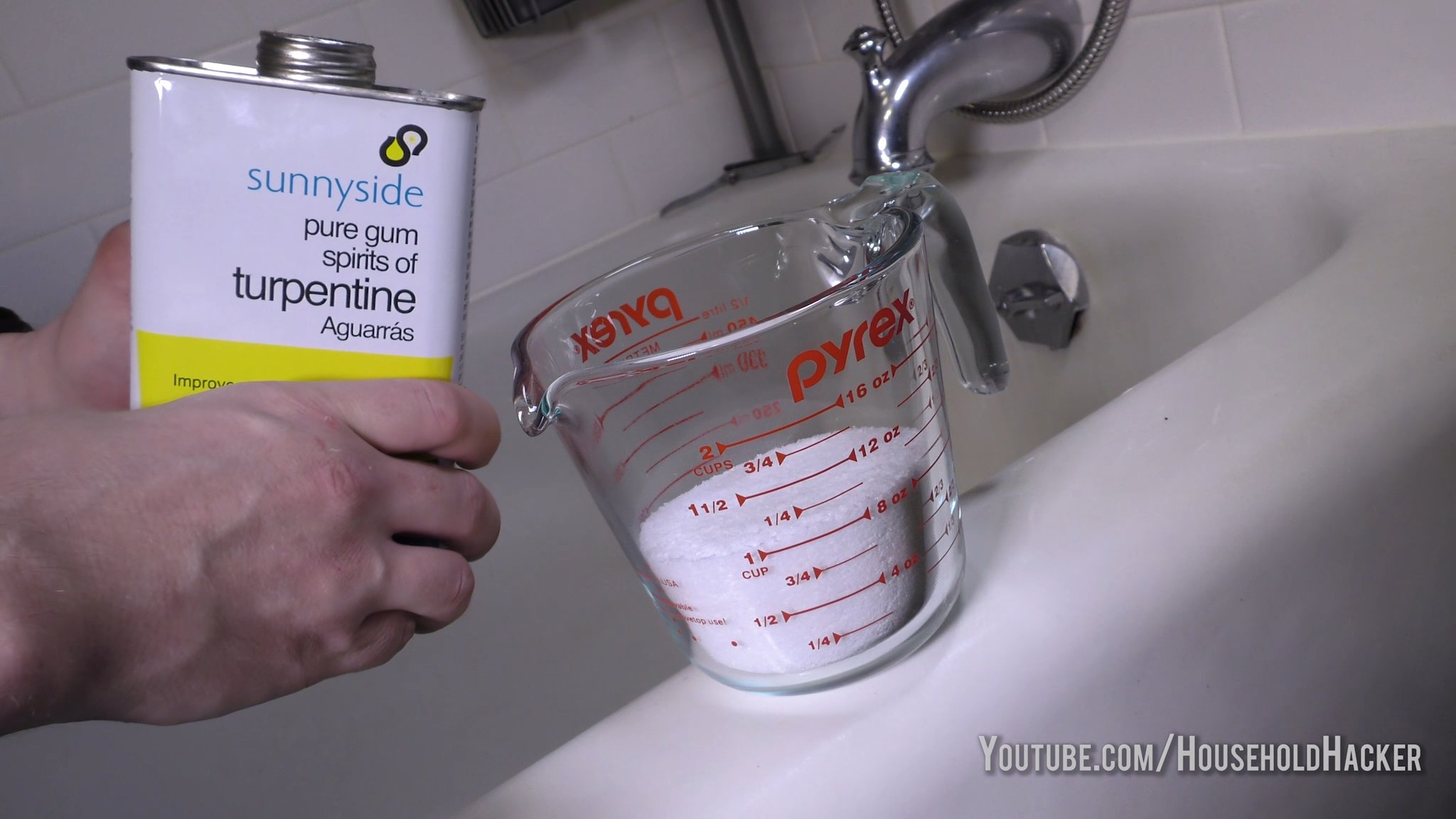
Unlocking the Magic of Salt: DIY Hacks for a Sparkling Home
Hey there, fellow DIY enthusiasts! I’m so excited to share some of my favorite salt hacks that will transform your cleaning routine and leave your home sparkling. Salt, that humble kitchen staple, is a surprisingly powerful cleaning agent, deodorizer, and even a pest deterrent. Get ready to be amazed by its versatility!
Cleaning Power Unleashed: Salt’s Amazing Abilities
Before we dive into the specific hacks, let’s quickly understand why salt is such a cleaning superstar. It’s naturally abrasive, helping to scrub away grime without harsh chemicals. It’s also absorbent, making it great for soaking up spills and odors. Plus, it’s a natural disinfectant, helping to kill bacteria and germs. Now, let’s get started!
Tackling Tough Stains: Salt to the Rescue
One of my favorite uses for salt is tackling stubborn stains. It’s amazing how effective it can be!
Removing Red Wine Stains
Oh no, red wine spill! Don’t panic. Salt is your best friend here.
1. Act Fast! The sooner you act, the better. Blot up as much of the wine as possible with a clean cloth or paper towel. Don’t rub, just blot!
2. Cover with Salt: Generously cover the stain with a thick layer of salt. The salt will absorb the remaining wine.
3. Wait Patiently: Let the salt sit on the stain for several hours, or even overnight. You’ll see the salt gradually turn pink as it absorbs the wine.
4. Vacuum it Up: Once the salt has done its job, vacuum it up thoroughly.
5. Check and Repeat: If the stain is still visible, repeat the process. For stubborn stains, you might need to use a salt paste (mix salt with a little water) and gently scrub the area before vacuuming.
Cleaning Scorched Pots and Pans
Burnt food stuck to your pots and pans? I’ve been there! Salt can help loosen that stubborn residue.
1. Cool Down: Let the pot or pan cool down completely before attempting to clean it.
2. Salt and Water Soak: Fill the pot or pan with warm water and add a generous amount of salt (about 1/4 cup for a medium-sized pot).
3. Let it Soak: Let the mixture soak for several hours, or even overnight. This will help loosen the burnt food.
4. Scrub with Salt Paste: Make a paste of salt and a little water. Use a non-abrasive sponge or cloth to gently scrub the burnt areas. The salt will act as a mild abrasive to help remove the residue.
5. Rinse and Repeat: Rinse the pot or pan thoroughly with water. If any burnt food remains, repeat the process. For really stubborn spots, you can try boiling the salt and water mixture in the pot for a few minutes before scrubbing.
Brightening Dull Brass and Copper
Is your brass or copper looking a little lackluster? Salt can bring back its shine!
1. Make a Paste: Mix equal parts salt, flour, and white vinegar to create a paste.
2. Apply the Paste: Apply the paste to the brass or copper item, making sure to cover all tarnished areas.
3. Let it Sit: Let the paste sit for about 15-30 minutes.
4. Rinse and Polish: Rinse the item thoroughly with warm water and dry it with a soft cloth. Polish with a clean, dry cloth to bring out the shine. You’ll be amazed at the difference!
Deodorizing Like a Pro: Salt’s Odor-Fighting Power
Salt isn’t just for cleaning; it’s also a fantastic deodorizer. Here are a few ways I use it to keep my home smelling fresh.
Freshening Up Your Fridge
A smelly fridge is no fun. Salt can help absorb those unpleasant odors.
1. Salt Solution: Mix a few tablespoons of salt with a quart of water.
2. Wipe Down: Use a sponge or cloth to wipe down the interior of your fridge with the salt solution. Pay special attention to shelves, drawers, and any areas where spills have occurred.
3. Salt Bowl: Place a small bowl of salt in the back of your fridge to absorb lingering odors. Replace the salt every few weeks.
Eliminating Sink Odors
That funky smell coming from your kitchen sink? Salt can help clear it up.
1. Salt Flush: Pour about 1/2 cup of salt down the drain, followed by a cup of hot water.
2. Let it Sit: Let the mixture sit for about 30 minutes.
3. Flush Again: Flush the drain with plenty of hot water. This will help dislodge any buildup and neutralize odors. You can repeat this process regularly to keep your drain smelling fresh.
Reviving Sponges
Sponges can get pretty gross and smelly. Salt can help revive them.
1. Salt Soak: Fill a bowl with warm water and add a generous amount of salt (about 1/4 cup).
2. Soak the Sponge: Soak the sponge in the salt water for several hours, or even overnight.
3. Rinse and Squeeze: Rinse the sponge thoroughly with clean water and squeeze out any excess water. The salt will help kill bacteria and remove odors, leaving your sponge feeling fresh and clean.
Pest Control with Salt: A Natural Deterrent
Believe it or not, salt can also be used as a natural pest deterrent.
Keeping Ants at Bay
Ants invading your kitchen? Salt can help create a barrier.
1. Identify Entry Points: Find out where the ants are entering your home.
2. Salt Barrier: Sprinkle a line of salt along the ant trails and entry points. Ants don’t like crossing salt, so this will help deter them.
3. Repeat as Needed: Repeat the process as needed, especially after rain or cleaning.
Controlling Weeds
Weeds popping up in your driveway or sidewalk cracks? Salt can help control them.
1. Salt Solution: Mix a strong salt solution (about 1 cup of salt per gallon of water).
2. Apply Carefully: Carefully pour the salt solution onto the weeds, avoiding any surrounding plants that you want to keep.
3. Repeat as Needed: Repeat the process as needed. Be careful not to overuse salt, as it can harm the soil.
More Salt Hacks to Explore
The possibilities with salt are endless! Here are a few more ideas to try:
* Cleaning your iron: Sprinkle salt on a clean cotton cloth and iron over it to remove residue from the iron’s soleplate.
* Setting colors in new clothes: Soak new clothes in a salt water solution before washing to help prevent colors from fading.
* Cleaning artificial flowers: Place artificial flowers in a paper bag with salt and shake gently to remove dust and dirt.
* Exfoliating your skin: Mix salt with olive oil or coconut oil for a natural and invigorating body scrub (avoid using on sensitive areas or open wounds).
* Cleaning grout: Make a paste of salt and baking soda and scrub grout lines with a toothbrush.
Important Considerations
While salt is a fantastic cleaning agent, it’s important to use it carefully. Avoid using salt on delicate surfaces that could be scratched. Always test a small, inconspicuous area first to ensure that the salt doesn’t damage the surface. And remember, moderation is key. Overusing salt can harm the environment, especially when used for weed control.
I hope these salt hacks have inspired you to explore the amazing cleaning and deodorizing power of this humble ingredient. Happy cleaning!
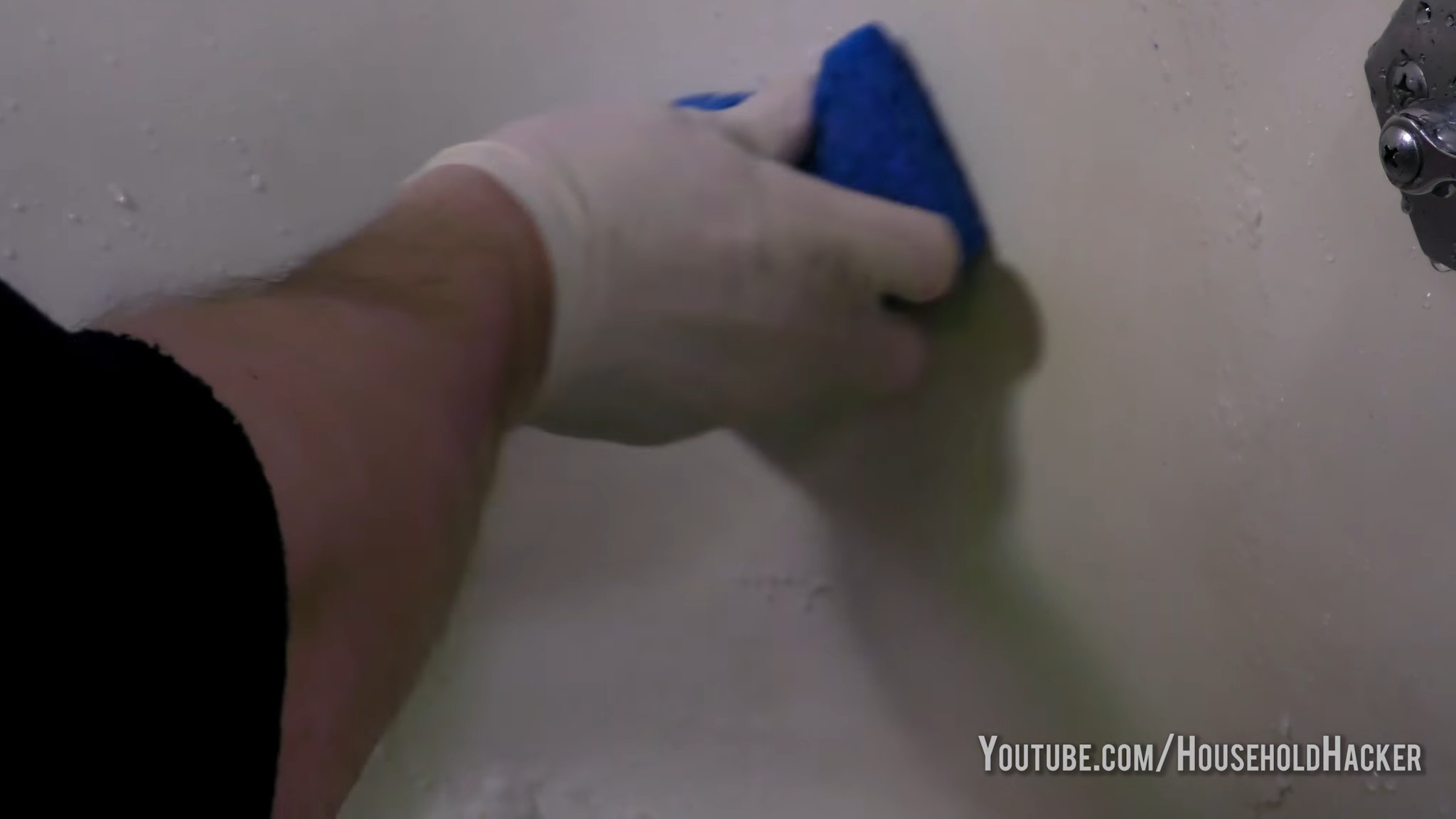
Conclusion
So, there you have it! A treasure trove of simple yet incredibly effective salt hacks for your home. We’ve explored how this humble kitchen staple can transform from a mere seasoning into a powerful cleaning agent, a stain remover extraordinaire, and even a natural deodorizer. From reviving dull copper pots to banishing stubborn carpet stains, the versatility of salt is truly remarkable.
But why should you bother with these DIY tricks when there are countless commercial products available? The answer is simple: effectiveness, affordability, and eco-friendliness. Many commercial cleaners are packed with harsh chemicals that can be harmful to your health and the environment. Salt, on the other hand, is a natural, non-toxic alternative that’s readily available and incredibly budget-friendly. Plus, there’s a certain satisfaction that comes from knowing you’re tackling household chores with a simple, natural solution.
These salt hacks are a must-try because they offer a sustainable and cost-effective way to maintain a clean and fresh home. They are easy to implement, require minimal effort, and deliver impressive results.
Looking for variations? Consider adding a few drops of essential oil to your salt solutions for an extra boost of fragrance and cleaning power. Lavender, lemon, and tea tree oil are excellent choices for their antibacterial and antiviral properties. For tougher stains, you can create a paste of salt and baking soda for added scrubbing power. Experiment with different combinations and find what works best for your specific needs.
Don’t be afraid to get creative and adapt these salt hacks to your own unique circumstances. The possibilities are endless!
We wholeheartedly encourage you to try these DIY salt hacks and experience the magic for yourself. You’ll be amazed at how such a simple ingredient can make such a big difference in your home.
And most importantly, we want to hear about your experiences! Share your success stories, your challenges, and your own unique salt hacks in the comments below. Let’s create a community of resourceful homeowners who are passionate about natural cleaning and sustainable living. Your insights could inspire others to embrace the power of salt and transform their homes for the better. So go ahead, give these salt hacks a try, and let us know what you think! We can’t wait to hear from you.
Frequently Asked Questions (FAQs)
What kind of salt should I use for these hacks?
Generally, plain table salt or sea salt works best for most of these hacks. Avoid using iodized salt on delicate surfaces, as the iodine can sometimes cause staining. For scrubbing purposes, coarser salts like kosher salt or sea salt can provide extra abrasion. Epsom salt, while technically a salt compound, is best reserved for its specific uses, such as soothing sore muscles or exfoliating skin, and isn’t typically interchangeable with table salt in cleaning applications.
Are these salt hacks safe for all surfaces?
While salt is generally safe, it’s always a good idea to test any cleaning solution on an inconspicuous area first, especially on delicate surfaces like marble, granite, or painted wood. Avoid using salt on surfaces that are prone to scratching, such as polished metals or certain types of plastic. When in doubt, consult the manufacturer’s instructions for your specific surfaces.
How do I store salt solutions?
Salt solutions can typically be stored in airtight containers for several weeks. However, it’s best to make fresh solutions as needed to ensure maximum effectiveness. If you notice any discoloration or unusual odors, discard the solution and make a new batch. Label your containers clearly to avoid any confusion.
Can I use salt to clean my oven?
Yes, salt can be used to clean your oven! Sprinkle a generous layer of salt on spills while the oven is still warm (but not hot). Once the oven has cooled completely, wipe away the salt and the mess should come right off. For tougher baked-on messes, you can create a paste of salt and water and apply it to the affected areas. Let it sit for a few hours or overnight, then scrub and wipe clean.
Will salt damage my pipes if I use it to unclog drains?
While salt can be used to help unclog drains, it’s important to use it in moderation and in conjunction with other methods. Pouring large amounts of salt down the drain can potentially corrode pipes over time. A better approach is to combine salt with baking soda and vinegar, followed by boiling water. This creates a natural chemical reaction that can help break down clogs. If the clog persists, it’s best to consult a professional plumber.
Can I use salt to remove red wine stains from carpet?
Yes, salt is an excellent natural remedy for red wine stains on carpet. Blot up as much of the wine as possible with a clean cloth. Then, cover the stain generously with salt and let it sit for several hours or overnight. The salt will absorb the remaining wine. Vacuum up the salt and repeat if necessary.
Is salt effective for removing rust?
Yes, salt can be effective for removing rust, especially when combined with lemon juice or vinegar. Create a paste of salt and lemon juice or vinegar and apply it to the rusted area. Let it sit for a few hours, then scrub with a brush or sponge. Rinse thoroughly and dry. For stubborn rust, you may need to repeat the process.
Can I use salt to deodorize my refrigerator?
Absolutely! Salt is a natural deodorizer that can help absorb unpleasant odors in your refrigerator. Place a small bowl of salt in the refrigerator to help neutralize odors. You can also use a salt solution to wipe down the interior of your refrigerator.
How often should I use these salt hacks?
The frequency of use will depend on your specific needs and circumstances. For general cleaning, you can incorporate these salt hacks into your regular cleaning routine. For stain removal or odor control, use them as needed.
What if these salt hacks don’t work for me?
While these salt hacks are generally effective, results may vary depending on the severity of the stain or the type of surface. If you’re not seeing the desired results, try repeating the process, using a stronger concentration of salt, or combining salt with other natural cleaning agents like baking soda, vinegar, or lemon juice. If all else fails, consult a professional cleaner. Remember to always test any cleaning solution on an inconspicuous area first.

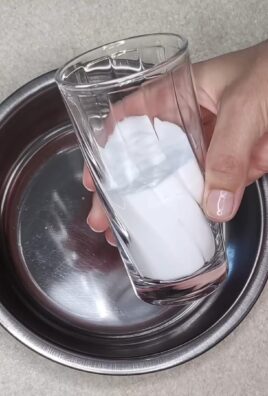
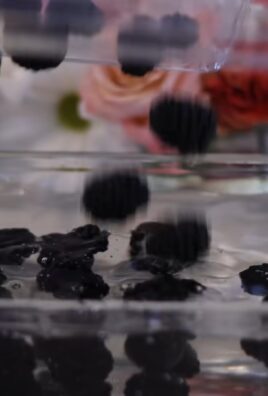
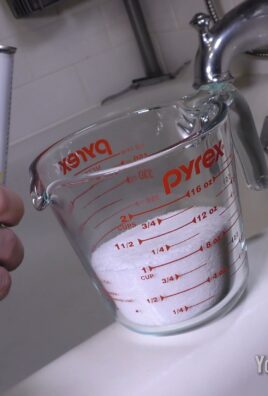
Leave a Comment